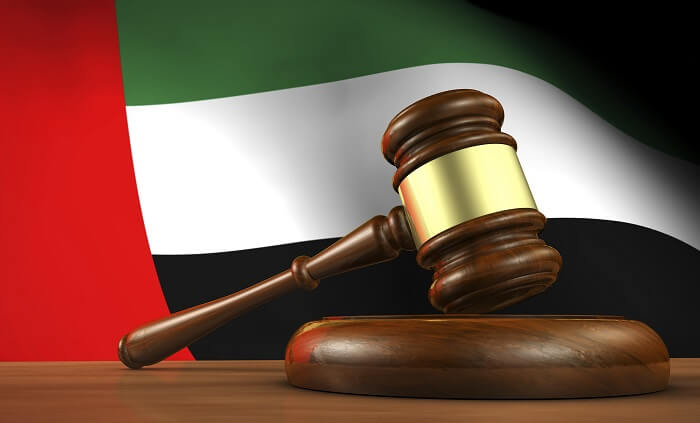
The United Arab Emirates has one of the most organized and efficient judicial systems in the Middle East. It combines elements of civil law, Islamic Sharia, and common law principles within certain jurisdictions. However, the procedures and hierarchy of courts can be confusing for those unfamiliar with them.
This guide provides a clear, step-by-step overview of how the UAE court system works — from filing a case to final appeal — and explains the crucial role UAE Lawyers play at every stage.
The UAE operates under a dual judicial system consisting of federal and local courts. While most emirates, including Sharjah, Ajman, Fujairah, and Umm Al Quwain, follow the federal system, Dubai, Abu Dhabi, and Ras Al Khaimah maintain their own independent judicial authorities.
The foundation of UAE law is based on civil law traditions, influenced by Egyptian and French legal systems, alongside Islamic Sharia for matters such as family law and inheritance. In special jurisdictions such as the DIFC (Dubai International Financial Centre) and ADGM (Abu Dhabi Global Market), English common law applies, especially in commercial disputes.
The UAE judicial structure consists of three main levels:
This is where all cases begin. The court handles civil, criminal, commercial, labor, and personal status disputes. Judges hear evidence, question witnesses, and deliver initial judgments.
If either party disagrees with the initial ruling, they can appeal to this court within a specific time frame. The Court of Appeal reviews both the facts and the law, allowing for new evidence or witness testimony in certain cases.
This is the highest judicial authority. It reviews the legal application and procedures of the lower courts rather than re-examining the facts. Its decision is final and binding.
The first step is to seek advice from professional UAE Lawyers. They assess the situation, review evidence, and determine which court has jurisdiction. Most cases require Arabic translations of documents and notarization. Legal representation is particularly important to avoid procedural mistakes.
Cases are filed electronically or at the court registry. Plaintiffs submit a written statement outlining the facts, evidence, and requested relief. Court fees vary depending on the claim value. Once filed, the case is assigned to a judge, and a hearing date is scheduled.
During the hearings, both sides present arguments, written memoranda, and supporting documents. Judges may appoint technical experts for complex cases, such as commercial or construction disputes. Proceedings are conducted primarily in Arabic, which is why UAE Lawyers fluent in both Arabic and English are invaluable.
After reviewing all the evidence, the court issues its judgment. This ruling includes the court’s findings, reasoning, and any financial or legal obligations imposed on the parties.
If one party believes there was an error in the judgment, they can appeal to the Court of Appeal. The appeal must be filed within a limited period (usually 30 days for civil matters). The appellate court may confirm, modify, or overturn the original decision.
The final step is appealing to the Court of Cassation (or Federal Supreme Court in non-local systems). This level examines whether the law was correctly applied, ensuring procedural fairness rather than re-evaluating facts.
In addition to the regular courts, the UAE offers specialized legal avenues for certain disputes. The DIFC Courts and ADGM Courts operate independently, using English as the official language. They primarily handle commercial, financial, and international business cases.
Arbitration is also a widely used alternative dispute resolution method. Institutions such as the Dubai International Arbitration Centre (DIAC) and Abu Dhabi Commercial Conciliation and Arbitration Centre provide efficient and private dispute mechanisms. Many UAE Lawyers are also qualified arbitrators, helping clients settle matters without lengthy court proceedings.
Professional UAE Lawyers play a vital role at every stage of litigation. They not only prepare legal documents but also advise clients on the best strategy to pursue — whether to negotiate, settle, or proceed to trial. Their responsibilities include:
• Drafting pleadings and memoranda in Arabic as required by the UAE courts
• Representing clients before judges and attending hearings
• Ensuring compliance with procedural laws and deadlines
• Coordinating with translators and expert witnesses
• Advising on appeals and enforcement of judgments
Choosing the right lawyer ensures clarity, compliance, and a stronger chance of success.
Legal proceedings in the UAE, while transparent, can be complex for non-residents. Common challenges include understanding procedural timelines, translating documents correctly, and interpreting judgments. Clients should always verify that their legal representative is licensed by the UAE Ministry of Justice or the relevant emirate authority.
Maintaining organized documentation, adhering to filing deadlines, and relying on reputable UAE Lawyers can save time and costs. Awareness of cultural and legal nuances also plays a significant role in achieving favorable outcomes.
The UAE court system is structured, reliable, and designed to deliver justice efficiently. Understanding its hierarchy and procedural flow helps individuals and businesses make informed decisions. However, professional guidance remains essential — and that’s where UAE Lawyers provide indispensable support.
Whether you are filing a commercial dispute, defending a criminal case, or resolving a family matter, an experienced lawyer ensures your rights are protected at every stage. By combining legal knowledge with procedural precision, UAE Lawyers make the path through the UAE’s judicial system clear, strategic, and fair.